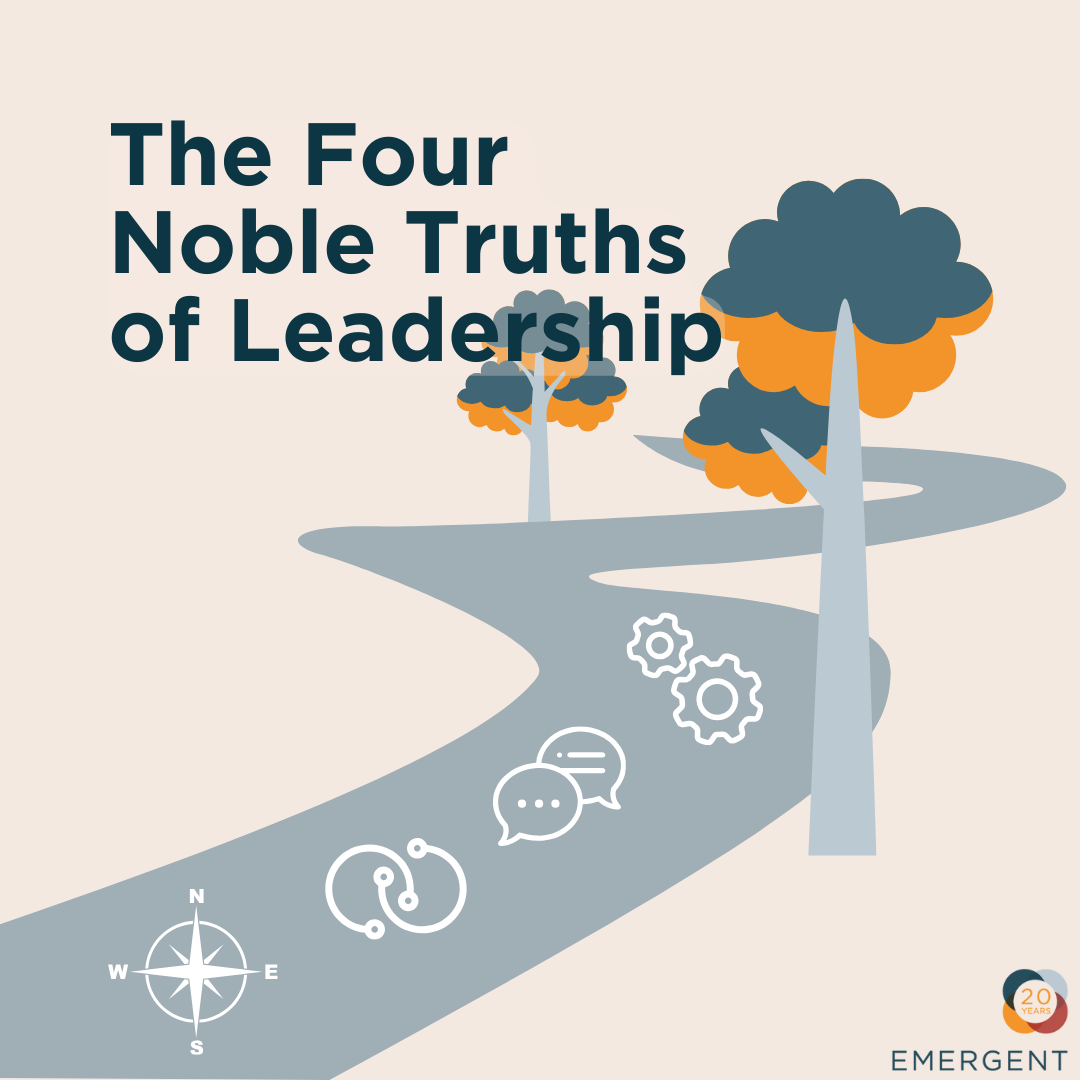If you’ve read anything about Buddhism, you’ve probably heard of the Four Noble Truths. These precepts pose a challenge–life is often painful and difficult–and then provide an answer to that challenge in the form of Buddhist philosophy. They point to a path forward grounded in non-resistance.
Leadership is both a privilege and responsibility. It is an opportunity to inspire and influence purposeful action among all those we interact with. But it is not always easy. Some people are easier to lead than others. There are days in the life of every leader when the (karmic) wheels seem to be falling off. It’s essential, for this reason, to be able to fall back on grounded ideas. To make things easier, I’ve devised my own set of principles: the Four Noble Truths of Leadership.
Direction is the first noble truth. While it is imperative for everyone to understand where the team is going, the leader’s first responsibility is to explain why that direction is being pursued. There needs to be a clear and well-articulated purpose to the work the leader is asking their team to do. And it has to be more than just making a buck, because money is a shallow and satisfying motivator. Ask yourself, How will moving in this direction benefit all stakeholder groups? What values are motivating our work? If you can find honest answers to these questions and communicate them to your teams, you will see an increase in motivation and purpose-driven behavior.
Connection is the second noble truth. To accomplish great things, leaders and those they lead have to feel that they’re in it together. But it has to be more than just an alignment of purpose and values. The best leaders are able to connect on an emotional level. Maya Angelou said, “I’ve learned that people will forget what you said, people will forget what you did, but people will never forget how you made them feel.” Emotional connection is made by listening, believing, inspiring, and empowering people.
Communication is the third noble truth of leadership. Effective leaders clearly communicate the direction and challenges of the enterprise. Their intention in every interaction is to achieve shared understanding. They realize that alignment and engagement require clarity, dialogue, and psychological safety. It isn’t just about making yourself understood–leaders must cultivate an environment in which everyone feels free to speak openly and honestly. Effective communication clears the path and sets the operation in motion.
Finally, execution is the fourth noble truth of leadership. Getting stuff done in a sustainable way is key to long-term success. Leadership is an iterative process–a leader must show up again and again, constantly adapting their skills and strengths to new challenges. This requires an emphasis on playing what Simon Sinek calls the “infinite game,” in which achieving is balanced with relating. To execute long-term, leaders must adopt a growth mindset, and encourage their team members to do the same. Leaders that are constantly learning are able to execute in any context.
Implementation of these four noble truths requires self-awareness, a disciplined process, and a supportive feedback loop that constantly monitors the organization’s stakeholder groups to ensure they are being, connecting, communicating, and executing in a way that truly works for all–not just for Wall Street or for senior executives’ bonus plan. The Buddha said all beings are connected in their effort to overcome worldly suffering. I say that the job of a leader is to unite their team in pursuit of a noble shared purpose, and to work actively toward the success and wellbeing of every member of their organization.
If you’re interested in becoming a more mindful leader, send me an email at [email protected].

Comments (2)
Each of these Truths are exponentially important when dealing with change management. Something that leaders at all levels need to deal with clearly. Your description of each provides a valuable definition that should be on every leader’s mind. Thanks so much for your insight.
Hi Bob! Thank you so much for your engaging comment on Ralph’s blog. Change management is a huge area where these “Truths” are so important!